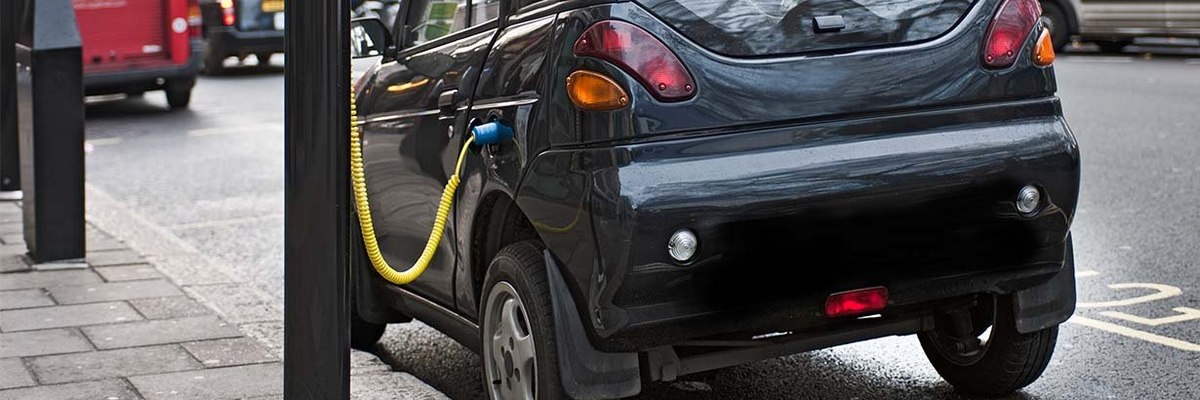Some of us (perhaps including you?) can remember when the only electric vehicles we ever saw on our streets were milk floats. They did their job brilliantly. They carried lots of milk bottles in crates and, most importantly given that the milkman arrived as his customers slept, they were silent. And slow. When the late, great Benny Hill gave the nation “Ernie the Fastest Milkman in the West” we laughed because we all knew we could outpace a milk float with both legs tied together. But milk floats did the job and electric vehicles have long since stopped being a source of humour. On the contrary, many believe them to be a vital weapon in the world’s battle against pollution and even global warming. And they have just passed a significant milestone in this country. Sales of electric cars have topped a million for the first time. Should we crack open the bubbly, or pause for a moment’s reflection?
Figures from the Society of Motor Manufacturers and Traders (SMMT) show that almost a quarter of a million new plug-in cars have been registered this year alone. Last month for every five new cars sold, one was electric. There are some perfectly good reasons for this. One is that by 2030 sales of new petrol and diesel cars will be banned in his country. So why buy a vehicle that will, in a relatively few years, be out of date and worth virtually nothing on the second hand market? Moreover one that might make you look as though you don’t care about the environment – or are simply ignorant of the harm done by burning fossil fuels whenever you so much as drive around the block. And anyway, isn’t it much cheaper to plug into a socket than drive to your nearest filling station and pay a price for a few gallons that would have made your eyes water only a few months ago and may rocket up again depending on what Putin and his pals in Saudi Arabia hatch up between them?
All true, but it’s that phrase “plug into a socket” that may make many EV owners raise their eyebrows or even utter a few choice curses. That’s not because you can’t do it. Indeed you may be one of those fortunate owners who rejoice in having a socket in your own driveway, never travel more than relatively short distances and offer a silent prayer to the gods of electric motoring. You will be the envy of many.
The problem is that it’s becoming almost impossible these days to talk to someone who owns an electric car and who has not suffered at least one journey from hell. Sometimes many such journeys. Indeed you may be one of them – in which case you will know exactly what I’m talking about. Here’s the scenario:
You are a relatively new EV owner who set out on a journey you’ve been making frequently over the years – let’s say 120 miles. It has usually taken you two or three hours depending on traffic. But not this time. Your battery was running low. No problem. You’d checked on charging points before you left home and there were several on our chosen route. You could not, of course, check on how many other motorists did the same and how long the queues would be. Nor could you check on whether you’d actually be able to pay for the juice. That’s not because you couldn’t afford it. This is how the highly respected consumer affairs outfit Which? began its report on its own investigation into the problems of charging an electric car:
“Imagine if a major fuel chain such as Esso announced you could no longer pay for your petrol or diesel with cash, credit or debit cards at most of its fuel stations. Instead, the company said you can refuel your car, but first you have to download a poorly rated app on your smartphone, which may not work very well.
“The alternative to that app is that you must order a special Radio Frequency Identification (RFID) card, set up a payment account with Esso online and then link it to the card. But this same RFID card is not going to work with BP, Shell or supermarket petrol stations. It could, but it won't. Nor will the app. Instead, you're going to need different apps and/or RFID cards for most other brands of petrol stations - and there are more than 30 of them.
“As consumers, we wouldn't stand for this happening on our forecourts, but this is the reality of electric car charging in the UK.
“You might not drive an electric car today, but the sale of new petrol and diesel cars will be banned as of 2030. That's less than nine years away. Like it or not, we will soon all be dependent on this charging infrastructure and the number of pure electric cars on UK roads is expected to rise from 210,000 today to around 12m in 2030.”
Pretty scary eh? And yet, as Which? points out, electricity has a major advantage over fossil fuel quite apart from its environmental benefits. It's everywhere already and it costs only a few hundred pounds to turn a lamppost or bollard into a charger or install one in your own garage or parking area. And that, of course, means you can always leave home with the equivalent of a full tank. Sadly, it does not guarantee that it will always get you where you want to go without having to top up again. But there’s some good news on that front too – assuming you happen to be in the right place at the right time. Which? says some supermarket chargers – such as Tesco's 7kW and 22kW - are free but you have to pay for the quicker, rapid chargers.
But obviously that’s not something you can rely on if it’s a long journey away and that, say car manufacturers and industry analysts, is a serious problem. It’s known in the trade as “range anxiety”. There simply are not enough fuel stations with enough chargers to satisfy the need – and even where they do exist they’re often already in use with long queues or they’re out of order. The motor manufacturers are worried.
This year, say Volkswagen, is crucial if EVs are to go mainstream. They warn that there has to be a significant increase in the number of available chargers to convince consumers to make the switch from petrol and diesel cars. Alex Smith, the VW boss in this country, says: “The key thing now is to ensure that the charging infrastructure not just increases to meet the current demand, but accelerates to overtake the current demand… We’ve got to get the charging infrastructure ahead of the game to enable us to progress from the quite specific adoption that we have at the moment into mass adoption. And we’re not there yet.”
It’s true that sales have been climbing - but from a very low level. The Society of Motor Manufacturers and Traders (SMMT) say we bought more electric cars last year than during the previous five years combined but they still accounted for less than 12% of sales last year. And manufacturers like VW worry about a divergence “between the acceleration rate of EV adoption and the supporting infrastructure. Pure EV sales increased by 76% last year. The charging infrastructure increased by about a third.” Mr Smith believes “range anxiety” has now been replaced by “charging anxiety”. When there is a certain density of public charging infrastructure in a particular area, he says, EV sales started to climb almost exponentially in that area. He is not alone in summarising it thus: “Ultimately, filling your car with electrons should be as convenient and as reliable as filling your car with a liquid fuel.”
David Bailey, professor of business economics at the University of Birmingham, agrees: “We need fast chargers on main routes, we need destination chargers, we need on-street [schemes] for installing chargers at home. We need a really holistic approach. We’ve not had that from the government. ” He points out that in Norway, for instance, more than half of cars sold are electric. Bailey believes a big investment in infrastructure is needed to get the UK where it wants to be by 2030 “ and he concludes: “We have simply set a date and have not put in place the infrastructure to get us to that date.”
A spokesperson for the Department for Transport said: “The government is providing more than £1.3bn to support the continued roll-out of charge points at homes, businesses and on residential streets across the UK, levelling up our charge point provision while supporting the deployment of rapid charge points on motorways and major A roads in England.”
The electric vehicle infrastructure strategy was supposed to be published last autumn, but has been delayed.
So where does all that leave you? Are you persuaded by the environmental arguments for going electric but do you suffer from range anxiety – or even “charging” anxiety? And might that discourage you from making the switch? Or are you postponing a decision in the hope that prices of EVs might fall? Or have you yet to be persuaded that going electric is the right solution? Or have you already made the switch? And if you have are you delighted or disillusioned?
Do let us know.










